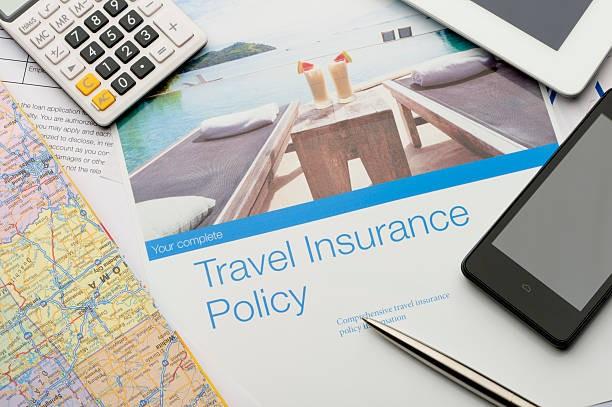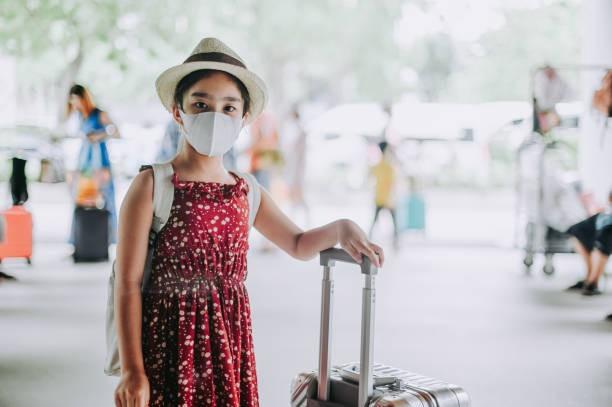
Most medical and healthcare insurance in Canada cover unexpected medical emergencies when traveling within the nation, and some Canadians have asked this question, “Do I need travel insurance within Canada?”
Let’s carefully go through this blog post as we review if you need travel insurance within Canada and the reasons behind it.

Do I Need Travel Insurance Within Canada?
Travel insurance is not a legal mandatory requirement for domestic travel within Canada. However, it is strongly advised to purchase travel insurance within traveling within the country. Your provincial health insurance may cover some medical expenses but not all costs, such as ambulance services or emergency transportation back to your home province.
Also, your medical insurance cannot cover lost or stolen luggage, trip cancellations or interruptions, and other unforeseen events.
Travel insurance offers you peace of mind and financial protection against emergencies and unpleasantries during your trip. With travel insurance, you can travel inter-province and be assured that every form of emergency will be taken care of as long as you have the correct travel insurance coverage.
When buying travel insurance coverage, reviewing the policy details and coverage options provided by different insurance providers to determine which one best suits your needs and preferences is essential.
Disclosure: My site is reader-supported. I may get commissions when you click through the affiliate links (that are great products I use and stand by) on my articles.

Travel Insurance Within Canada
- Travel insurance is not a legal mandatory requirement for domestic travel within Canada.
- Travel insurance offers you peace of mind and financial protection against emergencies and unpleasantries during your trip.
Why Do You Need Travel Insurance Within Canada?
 You need travel insurance when embarking on domestic trips for many reasons. Travel insurance offers coverage for various situations before or during your trip.
You need travel insurance when embarking on domestic trips for many reasons. Travel insurance offers coverage for various situations before or during your trip.
The specific coverage may vary depending on the insurance provider and the type of policy you choose. However, here are some common coverage offered by travel insurance:
Trip Cancellation or Interruption:
This coverage protects you from the loss you might insure when your trip is canceled or interrupted. This coverage reimburses you for prepaid and non-refundable trip expenses if you need to interrupt or cancel your trip due to covered reasons that illness, injury, or certain unforeseen events.
Emergency Medical Expenses:
Travel insurance also covers emergency medical treatment and expenses on a trip. If necessary, travel insurance covers medical expenses, hospital stays, surgeries, medications, and emergency medical evacuation.
Baggage and Personal Belongings:
One primary reason you need travel insurance is that it can reimburse you for loss, theft, or damage to your luggage and personal belongings during your trip. This coverage usually includes both checked-in and carry-on baggage. This is one benefit you can’t get when traveling and trusting your medical or healthcare insurance coverage.
Travel Delay or Missed Connection:
If your trip is delayed or you miss a connecting flight for reasons beyond your control, travel insurance can cover additional expenses like accommodation, meals, and transportation. This is even important for domestic flights within the country.
Travel Assistance Services:
Many travel insurance policies provide 24/7 assistance, including emergency hotline access, help with lost passports or travel documents, and concierge services.
Why Is Travel Insurance for Domestic Trips Important In Canada?
Travel insurance for domestic trips is essential in Canada because it provides coverage for additional medical emergencies reducing potential out-of-pocket expenses. Canada maintains a publicly funded healthcare system, and provincial health insurance plans may limit coverage when you travel outside your home province.
Travel insurance covers other travel-related issues, such as trip interruption, cancellation, delays or missed connections, stolen or lost belongings, and emergency services. Best of all, it offers peace of mind that you are financially protected against unforeseen circumstances and emergencies during your trip.
How Much Coverage Do I Need When Purchasing A Travel Insurance In Canada
 The amount of coverage you need when purchasing travel insurance within Canada depends on various factors, including your specific travel plans, personal circumstances, and risk tolerance.
The amount of coverage you need when purchasing travel insurance within Canada depends on various factors, including your specific travel plans, personal circumstances, and risk tolerance.
If you are a bit older or have a pre-existing medical condition, it is advised to get travel insurance that offers medical coverage. This should include coverage for emergency medical treatment, hospitalization, medications, and medical evacuation if needed. Consider the cost of healthcare services in the destination province or territory.
Also, regardless of your age, purchasing travel insurance that offers coverage for trip loss is essential. The best coverage for trip loss is the one whose coverage amount equals or exceeds the total non-refundable expenses you have paid for your trip. This can include airfare, accommodations, tour packages, and other costs pre-booked.
If you are traveling with essential personal belongings and baggage within the country inter-province, it is advised to have it insured. Assess the total value of the items, including clothing, electronics, and other personal belongings. After that, choose coverage that protects you against loss, theft, or damage to your luggage and belongings.
If you are traveling with your vehicle, you should get liability coverage. Liability coverage protects you if you accidentally cause harm to others or damage property during your trip. The recommended coverage amount can vary depending on your circumstances and the activities you plan to engage in during your trip.
Furthermore, if you are going on vacation with the country and you will be engaged in adventure sports or activities and extreme sports, you must get these activities covered to cover any potential risks associated with those activities.

Travel Insurance Within Canada
- Travel insurance is not a legal mandatory requirement for domestic travel within Canada.
- Travel insurance offers you peace of mind and financial protection against emergencies and unpleasantries during your trip.
Where Do I Get Travel Insurance Canada?
 There are several ways you can get travel insurance in Canada. You can contact insurance companies that offer travel insurance through their websites or by calling their customer service helpline to inquire about travel insurance options. Some of Canada’s best insurance companies that provide travel insurance include TD Insurance, Blue Cross, Allianz Global, CAA Insurance, Manulife CoverMe, World Nomads, and SafetyWing.
There are several ways you can get travel insurance in Canada. You can contact insurance companies that offer travel insurance through their websites or by calling their customer service helpline to inquire about travel insurance options. Some of Canada’s best insurance companies that provide travel insurance include TD Insurance, Blue Cross, Allianz Global, CAA Insurance, Manulife CoverMe, World Nomads, and SafetyWing.
Also, you can get insurance brokers, banks and credit companies, online travel insurance aggregators, travel agencies, and tour operators.
Types Of Travel Insurance Policies
Different travel insurance policies exist that cater to your travel needs and preferences. Here are the two most common types of travel insurance policies:
Single Trip Insurance:
This policy covers a specific trip or vacation. It typically covers the duration of the trip from departure to return. It offers protection against trip cancellation or interruption, medical expenses, baggage loss, and other potential risks during that journey.
Annual/Multi-Trip Insurance:
If you are a frequent traveler, this is the best travel insurance policy for you. This policy is designed for frequent travelers who take multiple trips throughout the year. It provides coverage for an unlimited number of travels within a specified time frame, typically one year. It is more cost-effective for individuals who travel frequently and eliminates needing insurance for each trip.
How To Choose The Right Travel Insurance
 Choosing the right travel insurance requires careful consideration of your specific needs and preferences. Here are some factors to consider when selecting a travel insurance policy:
Choosing the right travel insurance requires careful consideration of your specific needs and preferences. Here are some factors to consider when selecting a travel insurance policy:
Coverage Needs:
Assess your specific travel needs and determine the types of coverage that are important to you. Consider factors such as medical coverage, trip cancellation or interruption coverage, baggage insurance, and any additional coverage options based on your destination, activities planned, and personal circumstances.
Policy Limits:
Review the coverage limits of the policy, including maximum benefit amounts for medical expenses, trip cancellation, baggage loss, and other covered items. Ensure that the limits are adequate to cover potential costs associated with your travel plans.
Exclusions and Limitations:
Carefully read the policy limitations and exclusions to understand what is not covered by the insurance. Pay attention to pre-existing conditions, high-risk activities, and coverage eligibility restrictions.
Deductibles and Copayments:
Determine the deductibles and copayments associated with the policy. A deductible is the amount you must pay out of pocket before the insurance coverage, while copayments refer to the portion of expenses you’re responsible for. Consider your budget and risk tolerance when evaluating these factors.
Provider Reputation and Customer Service:
Research the reputation and reliability of the insurance provider. Look for reviews and ratings from other travelers to gauge the provider’s track record regarding claim settlement and customer service. Choosing a responsive insurance company that provides prompt assistance when needed is essential.
Cost and Value:
Compare the costs of different policies while considering their value. Don’t solely focus on the cheapest option, but rather on the policy that provides adequate coverage for your needs at a reasonable price.
Read the Fine Print:
Carefully review the policy documents, terms and conditions, and applicable policy certificates to fully understand what is covered, the claim process, and other essential details. Contact the insurance provider for clarification if you have any questions or concerns.
Personal Recommendations and Expert Advice:
Seek recommendations from friends, family, or travel experts with travel insurance experience. They may be able to provide insights and suggestions based on their own experiences.

Travel Insurance Within Canada
- Travel insurance is not a legal mandatory requirement for domestic travel within Canada.
- Travel insurance offers you peace of mind and financial protection against emergencies and unpleasantries during your trip.
Does Provincial Health Care Plan Cover Me For Travel Within Canada?
 Apart from Quebec, most Canadian provinces have reciprocal Interprovincial Health Insurance Agreements. If you incur an emergency medical treatment in another province or territory, the host province will settle the cost of the incurred expenses on the necessary healthcare services and subsequently collect reimbursement from your home province.
Apart from Quebec, most Canadian provinces have reciprocal Interprovincial Health Insurance Agreements. If you incur an emergency medical treatment in another province or territory, the host province will settle the cost of the incurred expenses on the necessary healthcare services and subsequently collect reimbursement from your home province.
However, not all medical treatments are covered, as these agreements have limits and gaps, which can leave you to settle some medical bills from out-of-pocket up to tens of thousands of dollars.
Below are some of the medical costs that your provincial health care plan cannot cover when you are in another province
- Ground and Air Ambulance
- Emergency Dental
- Prescription Drugs bought outside a hospital
- Medical Devices (i.e., splints, crutches, prostheses, etc…)
- Repatriation to your home province
- Private or Semi-Private Hospital Room
- Returning your vehicle to your home province when you’re unable to drive it back
- Bringing a family member if you’re traveling alone and need assistance
Note that reciprocal agreements only apply for emergency medical care that is confirmed to be medically necessary.
People Also Ask
Does It Make Sense To Purchase Travel Medical Insurance For Travel Within Canada?
Yes, buying travel medical insurance for travels within Canada makes sense, especially if you are older or have a pre-existing condition.
Your home province’s GHIP generally covers most of the emergency medical costs you might incur in another province. Still, there are limits that it can’t exceed, and you might need to settle the expense out of pocket, which can be very expensive at times.
Travel medical insurance coverage can cover areas not covered by GHIP, reaching thousands or even tens of thousands of CADS.
How Much Is the Cost of Travel Insurance For Trips Within Canada?
Generally, the cost for travel insurance within Canada is lower, and it can be up to 59%^ lower than what is charged for international trips.
This is because the claim amount for domestic trips is much lower than those outside Canada. Also, some insurance providers offer discounted rates. So you can check with them.
When Should You Start Your Travel Insurance?
The best time to purchase your travel insurance is immediately after you’ve booked and have started making arrangements for your next holiday. This goes for any type of insurance coverage you are going for, whether single trip or annual trip policy.
The trip cancellation or interruption benefits comes in place immediately after the policy is purchased and is in effect. This helps to cover you from any emergencies before, during, and after your trip for a designated time.

Travel Insurance Within Canada
- Travel insurance is not a legal mandatory requirement for domestic travel within Canada.
- Travel insurance offers you peace of mind and financial protection against emergencies and unpleasantries during your trip.
Conclusion
Getting travel insurance within Canada is not mandatory or a legal requirement. Still, it is essential to have peace of mind knowing that all possible financial risks you might incur during the trip are adequately covered.
It is strongly advised and recommended that you get travel insurance for domestic trips in Canada, especially if you are traveling for vacation and will be involved in adventure sports and activities.






